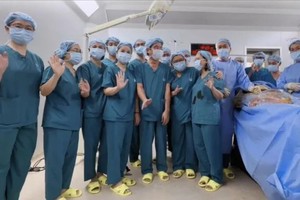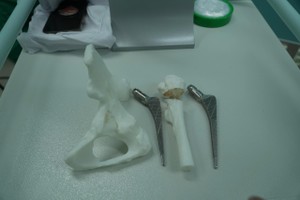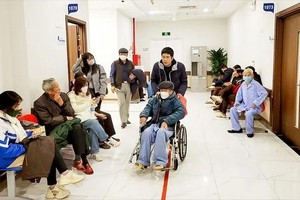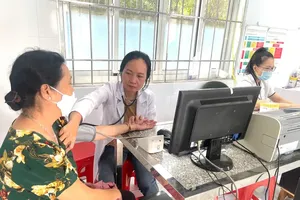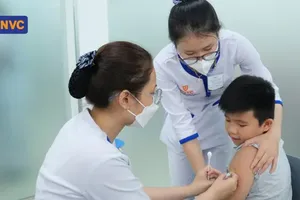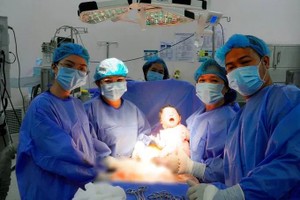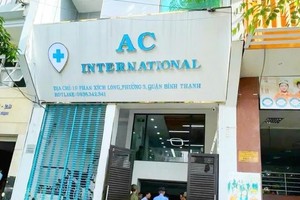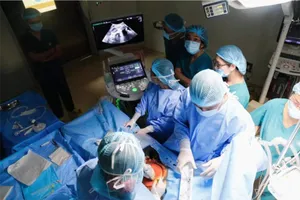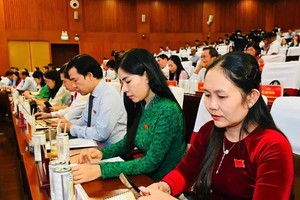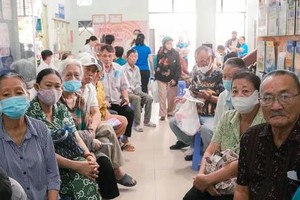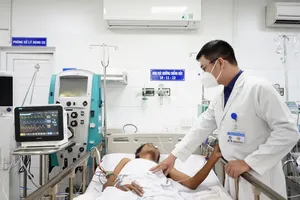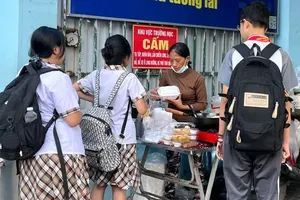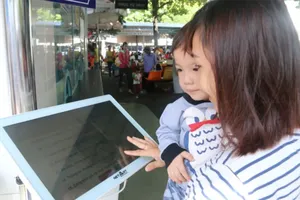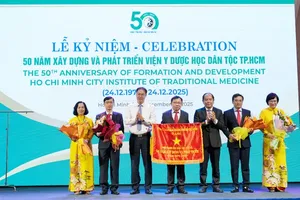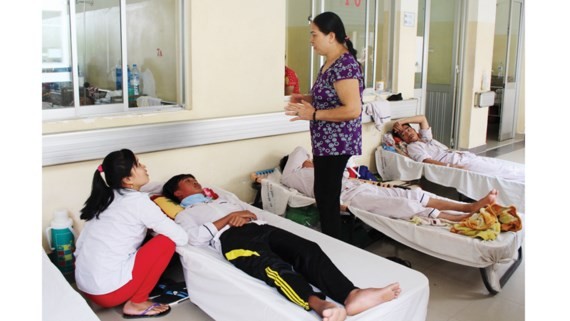
As per the Ministry’s Department of Preventive Medicine, since the beginning of the year, the country has reported 57,492 cases of dengue with 15 deaths. The figure shows a year-on-year rise of 14 percent in hospitalization cases.
The South has 31,397 cases, an increase of 15 percent compared to same period last year. Ho Chi Minh City has most cases with 500 cases a week averagely with total cases of 10,000 cases since the beginning of the year.
Director of HCMC-based Tropical Disease Hospital Nguyen Van Vinh said that the hospital admitted 4,328 cases in first six months. Of 250 serious cases, 101 patients suffered shock, 12 people are in severe condition, 34 patients experienced organ failure, one suffered myocarditis, three had encephalitis and four dead.
Since June, the infirmary receive more patients with dengue; averagely, 100-150 cases a week. More people had been hospitalized since then. Especially, in first week of July, 250 patients were rushed to the hospital, Dr. Vinh added.
Meantime, the Children Hospital No.1 admits 60-70 dengue kids a week, a rise of 10-15 percent compared to previous weeks. The Children Hospital No.2 announced to have 3,696 dengue cases since the beginning of the year. Apart from which, in July, it has admitted 506 cases. The newly established Children Hospital also received 1,035 infection cases of dengue.
According to Head of the Ministry's Health Preventive Department Dr. Tran Dac Phu, the prolonged rainy season and residents’ habit of containing water are conducive for mosquito development resulted in increase in number of dengue patients.
Deputy Health Minister Nguyen Thanh Long said that the disease comes early this year with more cases of infection though local authorities made concerted efforts to battle against the disease yet without determination; consequently, outbreaks of dengue will re-occur in next time, Mr. Long warned.
He proposed the participation of unions in the battle against the epidemic. Local administrations should strengthen penalties on organizations and households that are neglected in fighting the disease.
In addition, people’s committees and people’s councils need to re-organize a groups of volunteers who will increase information of the disease to each residential blocks and provide training to medical workers.

